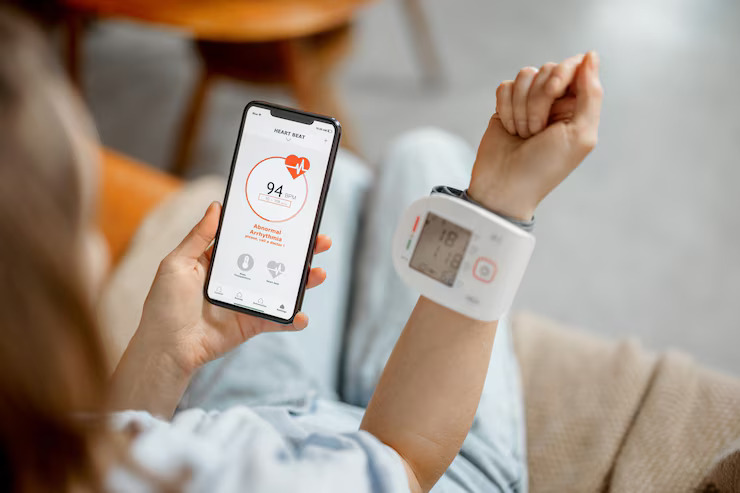Mental health research is witnessing a transformative era with the integration of digital tools and clinical assessments in measuring patient outcomes. This evolution promises enhanced precision in tracking patient progress, providing real-time data that was once unattainable. The use of mobile apps, wearable devices, and patient-reported outcome instruments are revolutionizing the field, merging traditional methods with cutting-edge technology to offer a comprehensive view of patient health dynamics.
Digital Tools in Mental Health Research
The Advent of Mobile Apps and Wearables
The introduction of mobile applications and wearable devices in mental health research has opened new avenues for data collection. These tools provide continuous, real-time monitoring of patients, capturing data on variables such as physical activity, sleep patterns, and heart rate—all of which can have significant implications for mental health.
Case Study: Using Wearables to Monitor Depression
A notable study involved participants wearing a device that tracked their movement and physiological data. Researchers were able to correlate patterns in physical activity and physiological responses with episodes of depression, providing a more nuanced understanding of the disorder.
Enhancing Patient Engagement
Digital tools not only gather data but also engage patients in their treatment processes. Apps that prompt users to record their mood or anxiety levels daily empower patients by making them active participants in their own care.
Integrating Digital Tools with Traditional Research Methods
Benefits of Integration
The fusion of digital tools and traditional methods offers several advantages:
- Increased Data Accuracy: Continuous data collection reduces reliance on self-reported information, which can be biased or inaccurate.
- Timely Intervention: Real-time data allows clinicians to intervene promptly, potentially preventing crisis situations.
Challenges of Integration
However, integrating these technologies is not without challenges:
- Data Privacy Concerns: The collection of personal health data raises significant privacy and security concerns.
- Reliability and Validity: Ensuring that digital tools provide reliable and valid data that can be integrated into clinical assessments is crucial.
Patient Reported Outcomes Instruments in Mental Health Research
Common Instruments for Depression
Several instruments are widely used to measure outcomes in mental health and depression:
- Patient Health Questionnaire (PHQ-9): A popular tool for assessing the severity of depression.
- Generalized Anxiety Disorder 7-item (GAD-7) scale: Used for screening and measuring the severity of generalized anxiety disorder.
How Digital Tools Enhance These Instruments
Digital platforms can streamline the administration of these questionnaires, ensuring that they are done regularly and that the data is promptly analyzed and utilized.
Case Studies in Digital Tools and Clinical Assessments
Case Study 1: Digital Platforms in Depression Research
A research initiative used a mobile app to deliver PHQ-9 questionnaires weekly to patients undergoing treatment for depression. The app’s reminders increased response rates, and the data collected provided insights into treatment effectiveness over time.
Case Study 2: Wearables in Anxiety Management
Another case involved the use of a wearable device that tracked physiological data in patients with anxiety. The device monitored heart rate variability, a marker of stress, and provided feedback to help patients manage anxiety through biofeedback techniques.
FAQs
How do digital tools contribute to mental health research?
Digital tools enable the continuous collection of a wide range of data, offering a detailed view of a patient’s mental health status and response to treatment.
What are the privacy implications of using these technologies?
While these tools can significantly enhance research capabilities, they also raise important questions about data security and patient privacy that must be carefully managed.
Can digital tools replace traditional clinical assessments?
Digital tools are not likely to replace traditional methods entirely but rather can be used to complement and enhance the traditional approaches.
Are there examples of digital tools impacting clinical outcomes positively?
Yes, numerous studies have shown that integrating digital tools into mental health strategies can improve patient engagement and treatment outcomes.
What steps can be taken to overcome the challenges of integrating digital tools in mental health research?
Ensuring robust data security measures, validating the reliability of the tools, and training clinicians to use these technologies effectively are crucial steps.
Conclusion
The integration of digital tools and clinical assessments in measuring mental health outcomes represents a significant advance in mental health research. While challenges remain, the potential to improve patient outcomes and enhance our understanding of mental disorders is unparalleled. As technology evolves, so too will the methods by which we approach mental health care, promising a future where digital tools play an integral role













